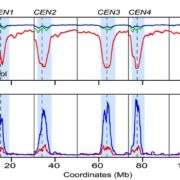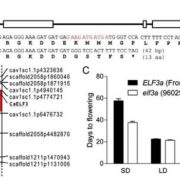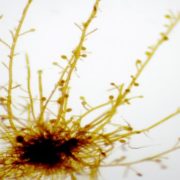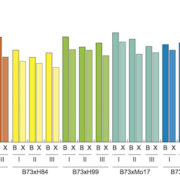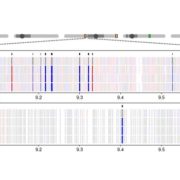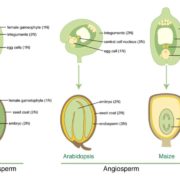Recombination between members of Onsen family
 Plant genomes are largely remnants of transposons of varying ages, some of which are presumed to be no longer capable of transposition. Sanchez et al. examined the family of Onsen retrotransposons to determine which members retain activity. They prompted transposition through heat treatment in a mutant line deficient in siRNA production (siRNAs suppress transposon activation). Interestingly, they observed that upon activation the family members recombined to produce new recombination products; “each transposition burst generates a novel progeny population of chromosomally integrated LTR retrotransposons consisting of pairwise recombination products produced in a process comparable the sexual exchange of genetic information.” The outcome is an increase in retrotransposon diversity, similar to what happens during sexual recombination. These findings explain the previously observed high rates of sequence diversification in retrotransposons. (Summary by Mary Williams) Nature Comms. 10.1038/s41467-017-01374-x
Plant genomes are largely remnants of transposons of varying ages, some of which are presumed to be no longer capable of transposition. Sanchez et al. examined the family of Onsen retrotransposons to determine which members retain activity. They prompted transposition through heat treatment in a mutant line deficient in siRNA production (siRNAs suppress transposon activation). Interestingly, they observed that upon activation the family members recombined to produce new recombination products; “each transposition burst generates a novel progeny population of chromosomally integrated LTR retrotransposons consisting of pairwise recombination products produced in a process comparable the sexual exchange of genetic information.” The outcome is an increase in retrotransposon diversity, similar to what happens during sexual recombination. These findings explain the previously observed high rates of sequence diversification in retrotransposons. (Summary by Mary Williams) Nature Comms. 10.1038/s41467-017-01374-x


